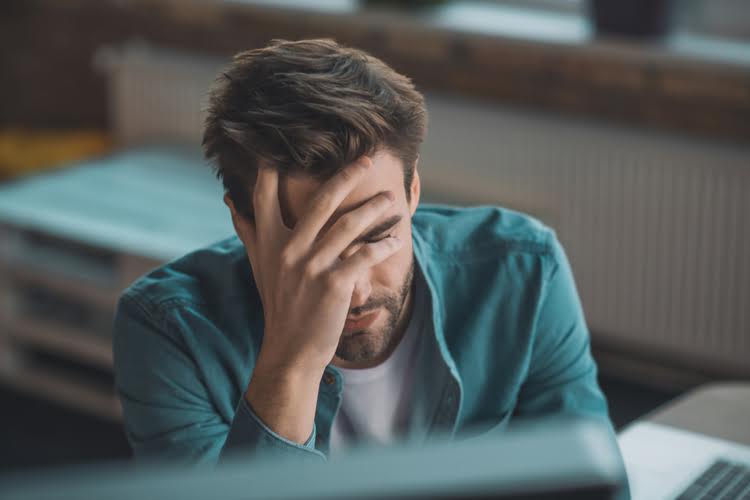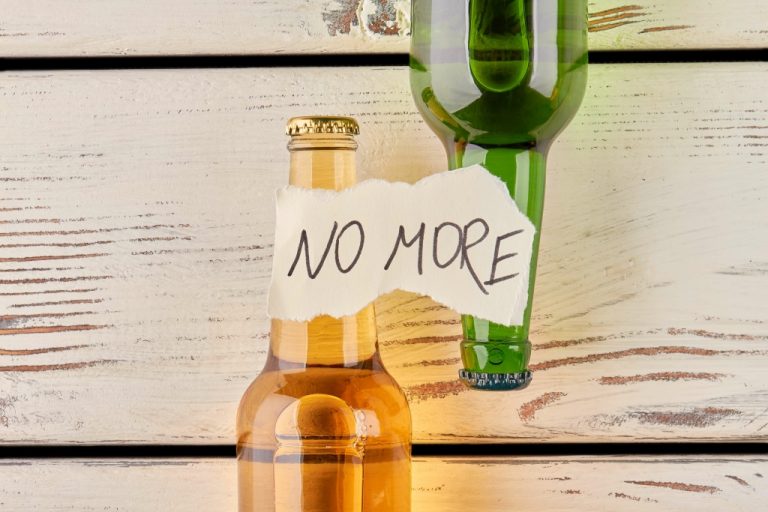However, as the enzymes in your liver metabolize the alcohol, removing it from your body, the sedating effect wears off. That leads to a “rebound effect” in which you experience lighter, more disrupted sleep. “People tend to sleep better the first half of the night and then have more sleep fragmentation during the second half of the night,” says Dr. Benjamin. If you want to avoid any ill-side effects of alcohol—at least as it relates to your sleep—cut yourself off around three hours before bedtime. The effects usually wear off after three or four hours, which will put you in better shape come bedtime. The majority of Americans report drinking alcoholic beverages, and as is the case with most things, enjoying alcohol in moderation shouldn’t lead to any ill effects for a healthy person.

If you drink alcohol at night and have trouble falling or staying asleep, you might wonder how long you should wait between your last drink and going to bed so your sleep isn’t impacted. In the short term, these alterations to our sleep pattern can lead to a restless second half of the night. In the long term, frequent disruptions to our natural sleep cycle may alter https://natural-cure.ru/v-ssha-odobren-preparat-satralizumab-kompanii-rosh-dlya-terapii-zabolevanij-spektra-optikonevromielita/ the homeostatic drive in a more permanent way.
How Alcohol Affects Sleep & Exercise
Sleep occurs over a sustained period, typically lasting approximately 8 hours inhumans. In the absence of continued dosing, alcohol consumed prior to the onset of sleep,therefore, will not be at a https://mobaon.net/drug-rehab-center-life-saver-for-drug-addicts/ constant level throughout the sleep period. Sleep, therefore, could be expected to be affecteddifferently during the initial period of high alcohol levels from the subsequent eliminationphase.
1 Alcoholism: Sleep EEG Data

When people struggle with sleep, they rarely consider alcohol as the culprit. Technically, yes — alcohol is considered a depressant, meaning it can make you feel relaxed, uninhibited, and for many, sleepy. This is precisely why many people reach for alcohol as a way to help them relax in the evening while also helping them fall asleep. In two separate studies, up to 28% of people said they use alcohol to help them fall asleep. Consuming two servings of alcohol per day for men and one serving for women can reduce sleep quality by 9.3%. However, even small amounts of alcohol can have noticeable effects in some people.
How much does it take to affect sleep?
Specifically, a low alcohol intake decreased the physiological recovery that sleep normally provides by 9.3 percent. The type of alcohol consumed can have some influence on sleep quality, but in general, all types of alcoholic beverages can potentially disrupt sleep to varying degrees. It’s best to limit or avoid alcohol consumption for optimal sleep quality, regardless of the type of alcohol. Alcohol can initially increase adenosine levels, a neurotransmitter that induces sleepiness.
Circadian Rhythm Disruptions
- Drinking too much is likely to have the opposite effect and leave you feeling groggy and possibly hungover the next day.
- Feige et al. (2006)studied five young men and five young women over three nights of drinking.
- Alcohol increases levels of adenosine, a key component of the homeostatic drive.
- Dr. Robert Oexman, President and Founder at Somly, tells Sleepopolis, “Alcohol has a sedative effect which can decrease anxiety and make it easier to fall asleep.” (2) He adds,” The effects are immediate, rewarding the sleeper with perceived good sleep.
- Though alcohol may help you fall asleep faster, it can disrupt the important REM stage of your sleep cycle, leading to lack of sleep or sleep disorders like insomnia.
Animal data indicate that administration of GABAergic antagonists lead toincreased REM (Sanford et al. 2003; Xi, Morales, and Chase 2001, 1999). So, does alcohol help you sleep or is it actually interfering with your quality of rest? Read on to find out how alcohol can affect your sleep, and why—as well as insight into the health benefits of getting enough shut-eye. The most effective time of day for the body to metabolize alcohol, according to research? That’s right, the traditional “happy hour” time is actually when the body is most prepared to process that cocktail. If that mimosa with brunch hits you particularly hard, it may be the result of circadian timing.
While this may work for a short time, typically, more alcohol is needed to accomplish this over time. This practice can mask an underlying sleep disorder such as obstructive sleep apnea which may be causing the insomnia in the first place. The liver acts as a filtering system for the body, helping metabolize food and chemicals (including alcohol itself), and pulling toxins from the https://natural-cure.ru/v-klinike-budapeshta-kreativ-dental-clinic-v-kostnoj-plastike-budut-ispolzovat-transplantaty-iz-reber-paczienta/ bloodstream. Like nearly all of the body’s organs, the liver functions according to circadian rhythms. Alcohol interferes with these circadian rhythms regulating the liver, and can contribute to compromised liver function, liver toxicity, and disease.
- The percentage of the night spent in different sleep stages (Rechtschaffen and Kales 1968) in men and women with alcoholdependence and sex-matched control.
- After a few drinks, these increased adenosine levels send us into a deep sleep.
- However, disrupted sleep patterns often follow this initial drowsiness, resulting in poor sleep quality.
- The link between alcohol consumption and sleep impairment is especially prominent among older adults.
- As blood alcohol levels rise and fall, alcohol exerts different effects on your sleep.
People who consume alcohol before bed don’t wake up as often during the first few hours of sleep. For people who snore or who have sleep apnea—a disorder that causes repeated pauses in breathing during sleep—drinking alcohol tends to aggravate symptoms. The typical sleep cycle begins with three non-rapid eye movement (NREM) stages of sleep and ends with rapid eye movement (REM). During sleep, the body cycles through all of these stages every 90 to 120 minutes, with NREM sleep dominating the first part of the night and REM increasing during the second part of the night.
Other Sleep and Safety Issues Impacted by Alcohol
There were no sexdifferences or interactions between diagnosis and sex for K-complex incidence, P2amplitude or P2 latency. Frontal (but not posterior) N550 and P900 amplitudes were smallerin alcoholics than controls and smaller in men than women, but the sex difference was notrelated to diagnosis. Latencies of N550 and P900 did not differ as a function of diagnosisor sex. The apparently delayed melatonin rhythms are in contrast to the single studyshowing evidence of an advanced body temperature rhythm early in withdrawal (Kodama et al. 1988), although this was more pronounced inalcoholics with comorbid depression. SWS was significantly increased over baseline on the first drinking night in thePrinz et al. (1980) and Feige et al. (2006) (0.10% BAC dose) studies but not inthe Feige et al. (2006) (0.03% BAC dose) orRundell et al. (1972) studies. Since alcohol affects everyone differently, it’s important to understand where your limit lies and how much alcohol you can drink before it starts to affect your sleep.


Commenti recenti